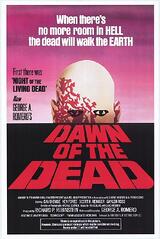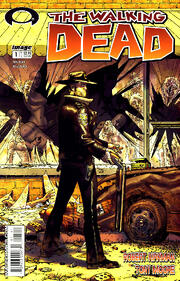 Today’s Zombie
Today’s Zombie
In the last decade, Zombie pictures, movies and games have entered the mainstream in a big way. The Walking Dead has not only seen huge success in its comic book form, but also in the tv show adapted from it. Even an actor as well loved as Brad Pitt produced and starred in a film adaptation of Max Brook’s World War Z. Yet even as the genre grows, it is important to remember that it owes a huge debt to the the wonderfully twisted mind of George Romero.
Night of the Living Dead
Rural Pennsylvania may not seem an obvious place for the genre to arise. It is neither a metropolis full to the brim with potential zombies, nor is it a place known for voodoo magic. Yet thanks to Romero’s seminal Night of the Living Dead it is undeniably the birthplace of the modern zombie film. Before, zombies had a vague definition as undead enemies, but it was Romero who defined them as shambling corpses relentlessly seeking human flesh. This film also started the genre’s tendency to comment on the human condition. As we watch a motley group of survivors try to make it through a single night, we also witness their struggle even to get along with each other. Night of the Living Dead makes the viewer question whether the zombies are the real threat, or whether the true evil lies in the heart of man.
‘I always thought of the zombies as being about revolution, one generation consuming the next.’
- George A. Romero
Dawn of the Dead

If Night of the Living Dead is the birth of the modern zombie, then Romero’s Dawn of the Dead represents its coming of age. Dawn of the Dead introduced the idea that the zombie menace went beyond the immediate area with the first Zombie Apocalypse. In the modern age it is common to give films a large scale, as entire cities become wastelands in the pursuit of suspense.
Yet in the late 70s this was not the case, so Dawn of the Dead broke new ground – while still restraining the action mainly to one location: the whole of the United States and probably the rest of the world is succumbing to the plague of zombies while the protagonitsts decide to take shelter in a shopping mall – Romero impressively combines the dystopian vision of worldwide demise with the intimate setting afforded by their self-imprisonment. And, of course, who can fail to see the parallels drawn between flesh-eating zombies and materialistic, advertising-induced zombie shoppers that populate these palaces of capitalism...
‘A zombie film is not fun without a bunch of stupid people running around and observing how they fail to handle the situation.’
- George A. Romero

Legacy
While these films are entertaining and important in their own right, it is illuminating to recognize the influence they have had on subsequent movies, comic books and video games. The Walking Dead built on Romero’s ideas and legacy in a big way. World War Z creates a zombie epidemic that affects the entire world, and tells that world’s story. At this rate we are only going to see more takes on the genre; but no matter how far out these predecessors go, they will always be rooted in a small Pennsylvanian house.
Links
-
Read an interview between Simon Pegg and George Romero here
-
Here more about horror and fantasy at our 451 Facebook page here
-
Learn more about Romero's films here



